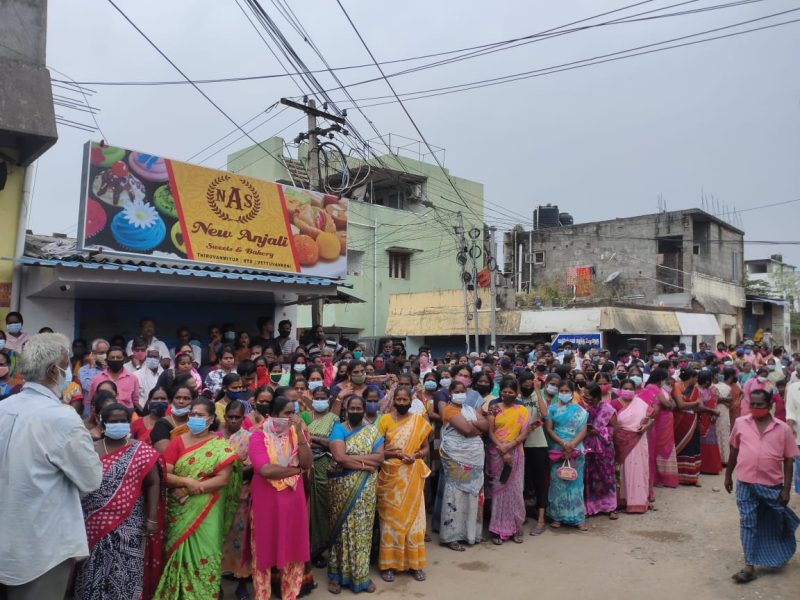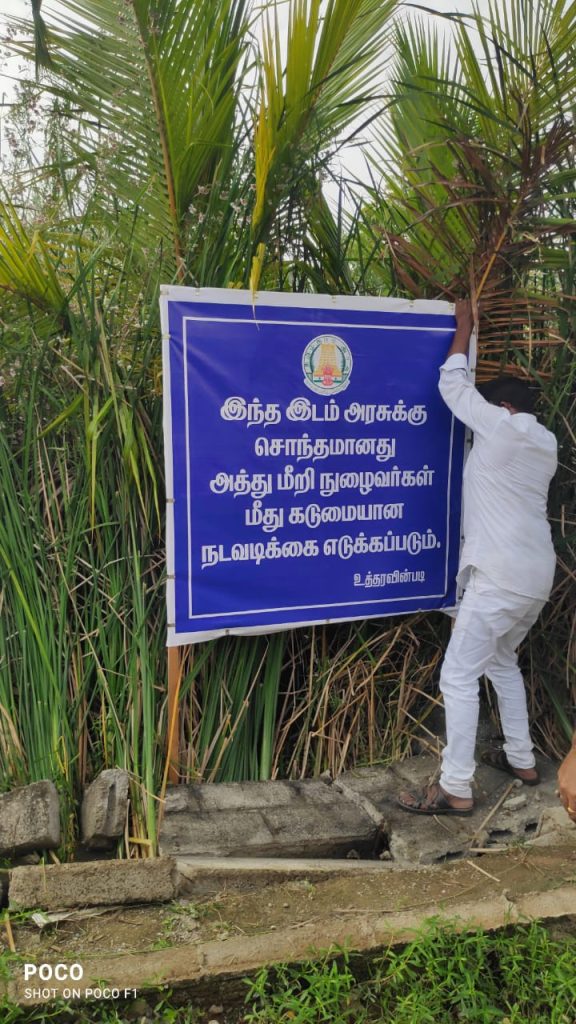
Bethel Nagar's woes, and the need for a policy on Chennai's wetlands
Buildings including government offices and industrial parks have been developed on the Chennai's water bodies; a uniform law is critical

The Madras High Court’s order to evict ‘encroachments’ on marshlands and reserved grazing land at Bethel Nagar, in the Chennai locality of Injambakkam, has not just caused a lot of anguish and financial distress for the area’s 1,000 odd residents. It has also brought to the fore the dire need for the state government to bring in a policy for reclassifying lands and to tackle the issue of encroachments on the metro’s wetlands.
Bethel Nagar residents are facing a grim and troubled future. For marketing executive S Arun, losing his house would cost him everything that he has earned until now. “As a person who moved to Chennai about three decades ago, I’ve invested everything that I had earned thus far to purchase the land here and build a house on it. It would not be that easy for me to let it just go,” he told The Federal.
This is not just Arun’s story. Over 1,000 families living in his neighbourhood are in a similar quandary.

According to the residents, in the late 1990s, the then village panchayat had identified government land reserved for grazing in Injambakkam due to a space crunch in the village and allotted over 200 acres to Dalits, fishermen and to Mudaliyars, an OBC community. The land which was initially allocated to 90 people changed hands as it was later purchased by several people from the initial land owners.
How the trouble for the residents began
Narayanan, another Bethel Nagar resident who has been living there for decades, regretted not acquiring the patta (title deed) for the land. “We came to know about the legal risk only in 2016, when some officials visited our place for a survey,” he confessed.
Also read: TN night ban on road via tiger reserve raises more questions than answers
The problem started brewing in 2008, when H Sekar, an activist and managing trustee of the Nature Trust, moved the Madras High Court to remove the encroachments in the poramboke land (land belonging to the government) at Bethel Nagar. But the court dismissed the petition in 2010.
In 2015, the same petitioner filed another petition, seeking to remove the encroachments at Bethel Nagar, arguing that they were built on marshlands and grazing land. A survey was conducted by the district administration to determine the facts, and orders were passed in 2019 to evict the buildings.
In February 2022, the Madras High Court came down heavily on government officials, ordering them to evict the encroachments. This came after the same petitioner approached the court with a contempt of court plea with regards to the court’s previous order to remove the encroachments at Bethel Nagar.
Narayanan said: “We are not against the court or the petitioner. But, why does it always work against poor people like us? You can see large townships just a kilometre away from our place. Nobody is concerned about that. There are hundreds of such houses built in the city close to water bodies — and some of them even on water bodies. But, nobody sees that nor action is taken against any of the big builders.”
Harder on commercial establishments
After the residents filed a petition seeking time on humanitarian grounds, the court granted time till April 2022 for the state government to relocate them. However, it asked all the commercial establishments in the area to be evicted at once and directed officials as a first step to cut off their electricity supply.
M Vetri, another resident, pointed out: “The government is planning to give us houses in the apartments built by the Tamil Nadu Housing Board, for which we have to pay money in instalments for at least 20 years to purchase. But, what about the investment we made here? Whatever the government gives us to relocate will cost us another 20 years to even own it. We cannot sell them at a time of crisis; but here, we can pledge our house or land.”
Meanwhile, Viduthalai Chezhiyan, an activist residing in Bethel Nagar for 20 years, claimed that most of the land in the area was reserved for grazing and is not a marshland.
“Of the total area, buildings are constructed mostly on 156 acres and all of them are mostly on land reserved for grazing. We have come from villages and we know the importance of grazing. But who owns cattle now to graze in this place?” he asked.
Also read: Madras HC seeks action against government teachers giving tuitions
According to Chezhiyan, during the DMK regime between 2006 and 2011, the then Chief Minister M Karunanidhi had said that that there would be no grazing lands in Chennai. “But, unfortunately, due to administrative reasons, we couldn’t get patta for this grazing land and now it has become a huge problem for us,” he said.
According to NGR Prasad, the legal counsel fighting for the Bethel Nagar residents, the then district collector’s report on the field survey clearly stated that the land is fit for people to reside and she had also recommended to the Chief Secretary, Revenue Department Secretary and to the Commissioner of Land Reforms to reclassify the region.
“Though there was a response from the Commissioner of Land Reforms to consider it, it did not materialise,” said Prasad.
Bethel Nagar is not alone
Bethel Nagar is not the only residential colony in Chennai to be built on marshlands or grazing land. Activist Jayaram Venkatesan, convenor of Arappor Iyakkam, an organisation fighting against corruption and malpractices, pointed out there are many more places in Chennai, including government offices and parks, which have been built on water bodies.
“We want all the encroachments on the water bodies to be removed. But, the irony is the government is the legal encroacher on all the water bodies. Be it the Madurai High Court complex or the Valluvar Kottam in Chennai, everything was reclassified for construction purposes. Those who have money and influence in the government manage to convert and reclassify the lands and escape from legal hurdles. The people in Bethel Nagar don’t have enough money, and are trapped,” said Venkatesan.
Chezhiyan said that there are about 145 unauthorised constructions in Chennai alone. “Apart from the 145 unauthorised constructions, there are other government buildings as well. Is it possible to remove all of them?” he asked.
The need for policy
Jayaram felt that the absence of a policy on removal and approval of encroachment is causing all the problems. “The government should come out with a policy with a cut-off period that should at least start from 2015. They can authorise those that were constructed before 2015, after conducting a proper survey and taking into account the nature of the land,” he added.
Chezhiyan also emphasised the need for a policy to remove encroachments. “Since most of the places in Chennai are either close to ponds, rivers and sea, only a proper policy to evict the encroachments and a proper relocation policy would help the people,” he observed.
A senior IAS officer in the revenue department, who did not want to be named, told The Federal that the issue was recently raised during the IAS, IPS and IFS officers conference held with Chief Minister MK Stalin. “The Chief Minister said that a team would be formed to look into the matter and appropriate action would be taken to reclassify the lands and to come out with proper housing and land policy,” the IAS officer said.
Meanwhile, the Bethel Nagar residents will bear the brunt of the absence of a critical state policy.


